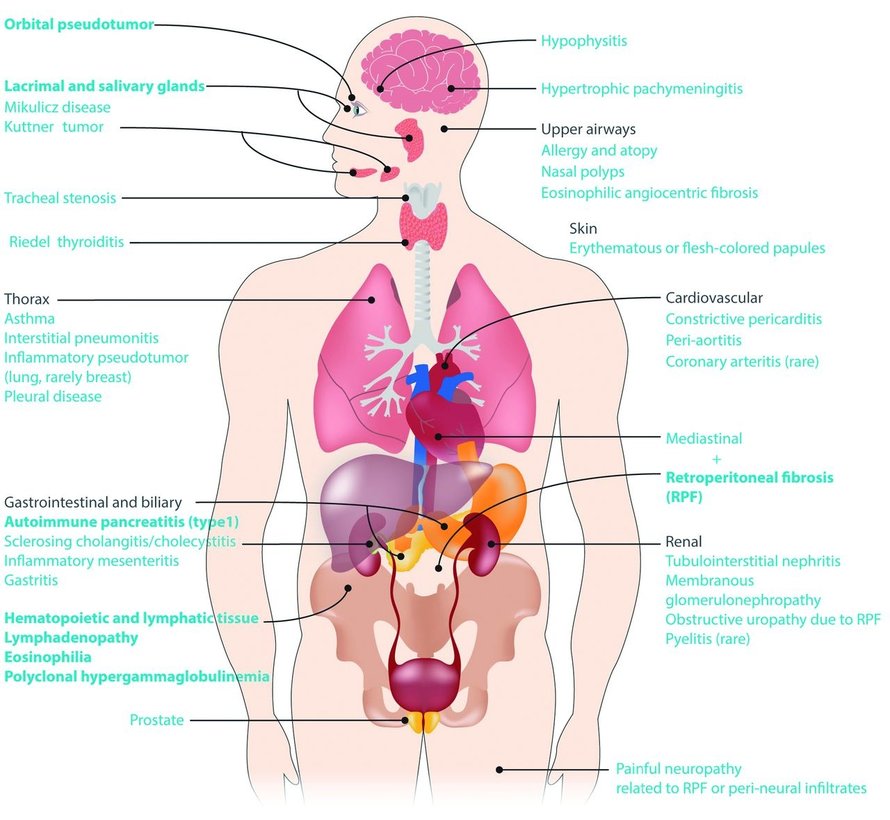Immunglobulin G 4
This test measures the amount of immunoglobulin G4 (IgG4 in blood SERUM)
This test is used when immunodeficiency with increased susceptibility to infections is suspected;
Hyper-IgG-4 syndrome: IgG4-related disease is the umbrella name for the various organ manifestations of an immune system disease in which the concentration of Immunoglobulin G of the fourth subtype(IgG4) in the blood and/or in the affected organ is greatly increased.
Control of immunotherapy of inhaled antigens; immunotherapy for inhalation allergy
Suspected chronic inflammation of the pancreas (sclerosing pancreatitis).
About 6% of healthy people also have an IgG4 elevation, without being affected by it.
Assessment of Ig4 deficiency Auto-Immune pancreatitis mainly affects older persons, which often manifests as jaundice, sometimes in combination with other autoimmune diseases. The disease can involve the bile ducts (sclerosing cholangitis), gallbladder (lymphoplasmacytic sclerosing cholecystitis) and kidneys (interstitial nephritis) and can form inflammatory masses in the lungs. Despite significant evolution in our understanding of AIP (Autoimmune pancreatitis), diagnosis remains a challenge.
The most common complaints and symptoms of AIP are:
- Abdominal pain. Pain in the upper part of the abdomen is the most common complaint in chronic
- pancreatitis.
- Fatty diarrhea and vitamin deficiency.
- Weight loss and malnutrition.
- Jaundice.
- Psychological and social problems.
- (More chance of) cardiovascular disease and osteoporosis.
reference values over 18 years 0.052 - 1,250 g/l method of measurement
: Nephelometry (NEPH)
For more information see: https://www.erasmusmc.nl/nl-nl/patientenzorg/aandoeningen/igg4-gerelateerde-ziekte
In addition to this examination, the determination of IgG, IgA and IgM is also recommended.






